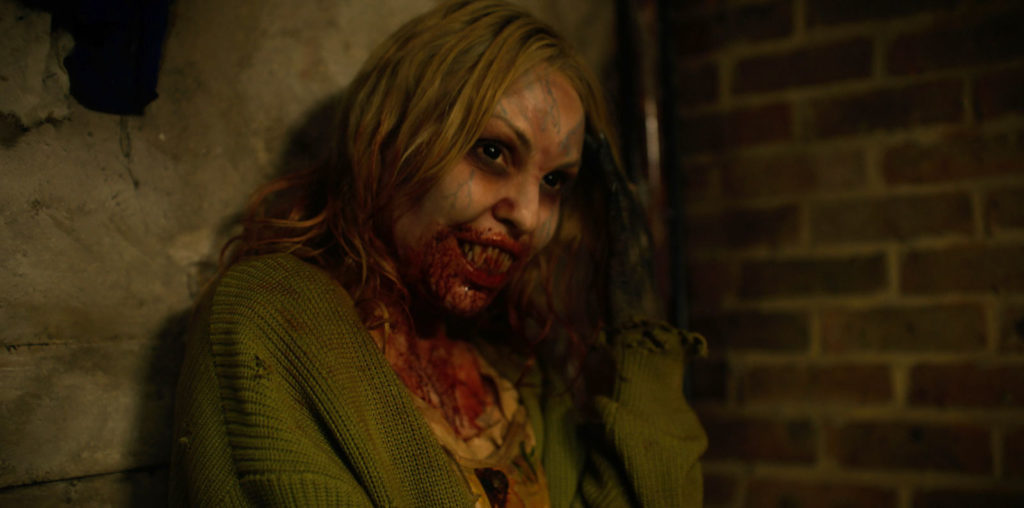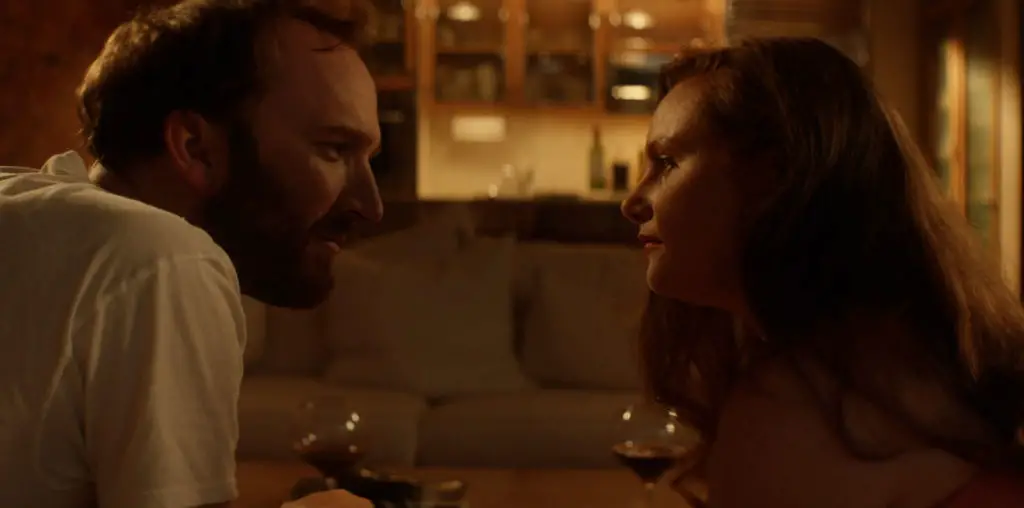
Now that “Glitter,” her feature starring debut, has finally arrived in theatres, the reason for pop/R&B diva Mariah Carey’s much-publicized breakdowns (at last count: two) is abundantly clear: the film itself. While the local press screening for “Glitter” played to only a half-capacity crowd, this downsized audience’s peals of laughter were loud enough to fill every corner the auditorium–not exactly the hoped-for reaction to an inspirational tearjerker, which is what “Glitter” so disastrously, laughably strives to be.
“Glitter” doesn’t waste any time exploiting Carey’s most frequently showcased assets–and no, I’m not talking about her Grammy-winning pipes. After a brief intro that shows how single (and singing) mother Lillian Frank (Valarie Pettiford) was forced to give up daughter Billie at an early age, Carey’s adult Billie is first seen all decked out in fishnet stockings and black lingerie with leopard print trim, shaking her groove thing as a not-quite-exotic dancer at an NYC club, circa 1983. After she and her friends/roommates/dance partners (Da Brat and Tia Texada) are soon offered a gig as back-up singers to a shockingly untalented dance artist, Billie’s soaring voice draws the attention of DJ Julian “Dice” Black (British actor Max Beesley, called on to bark his lines in a bad New Yawk accent and flash as much flesh as Carey), who offers her his services as producer. Not long after Billie and her friends start making the club rounds as a Mary Jane Girls-ish trio of trilling trollops, Billie and Dice are offering each other more than just their musical abilities, and Billie’s rapid ascent in showbiz is offset by the increasing turbulence in her relationship with Dice.
Carey has stressed that her “Glitter” role of Billie Frank is far from autobiographical, but the similarities to her true story are staggering. Billie, who is biracial (a fact that the film makes a point of emphasizing), has a big voice to match her big dreams, but she starts off distinctly small-time as a back-up singer for another pop act. Her talents are discovered by someone established in the music business, and they become romantically involved. The pair’s relationship turns stormy when he expresses the svengali-like (or should I say “Mottola-like”?) desire to steer both her career and her life, including controlling her mode of dress. And so on.
But the blatant parallels to Carey’s own story are the only aspects to “Glitter” that bear any resemblance to real life. The film may be a wish fulfillment fantasy aimed at teen and pre-teen girls, but director Vondie Curtis Hall (who previously directed the very entertaining–in the right way–“Gridlock’d”) and screenwriter Kate Lanier’s similarly naive depiction of the music business is laughable. Billie gets a record deal literally overnight and without ever signing on a single dotted line. Billie becomes a major star without a single significant concert date nor television appearance, and MTV was two years old at the time the film is set and already an influential force. Come to think of it, there’s no reason why this film is set in the 1980s–everyone looks like they could be from the ’90s or 2001, for that matter–except to give Carey a chance to cover and/or sample the R&B hits of the era (most prominently, Cherrelle’s “I Didn’t Mean to Turn You On”), which, in the film’s storyline, are original hits by Billie–hence giving Miss Mariah a history-rewriting ego boost.
Then again, the film is designed as one huge ego boost for its star. Instead, however, it comes off as one huge embarrassment, and much of the blame goes to Miss Mariah herself. She spends the whole film in a state of vacant, wide-eyed, smiley catatonia–that is, whenever she’s not passing off a constipated look as one of “sadness” or lipsynching to her own prerecorded vocal tracks (and quite horribly at that; one would think that a decade’s worth of music video experience would’ve given her that one ace-in-the-hole). As in all of her recent videos, Carey also shows a lot of skin (though this being a PG-13-rated film, she still leaves some threads on), but her ample cleavage–and the inexplicable streak of silver paint that shows up on various areas of her body–can’t distract from her awful attempts at acting, not to mention the already laughable situations in which she finds herself. In fact, one of the most hilarious scenes is one of gratuitous body baring: Billie films her first music video wearing a translucent wrap over a silver string bikini, but the wind machine is too strong, and–whoops!–there goes the wrap!
Yet that is just one of the many unintentional moments of high comedy in the howlerfest that is “Glitter.” Just when you think it could not get more ridiculous, Hall, Lanier, and Miss Mariah go that extra mile. A scene where Billie, all decked out in a sequined gown and spike heels, struggles to walk–make that “wobble”–across a lawn and one where a split-up Billie and Dice engage in seemingly telepathic songwriting (if only I were kidding) are instant entries into the Bad Movie Hall of Fame. But even more jaw-dropping is the one-two punch finale that is a pathetically desperate bid to make viewers cry. If anyone does shed any tears at “Glitter,” it’s undoubtedly from busting a gut laughing.


I loved the movie I watch it at least once a week, so I have no clue what you are talking about , but hey everyone has there own opinion.